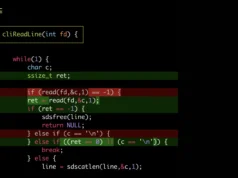Sherlock Project provides a very powerfull command line tool called Sherlock to find usernames across many social networks. It requires Python 3.6 or higher and works on MacOS, Linux and Windows.
Installation
NOTE: Python 3.6 or higher is required.
#clone the repo
$ git clone https://github.com/sherlock-project/sherlock.git
#change the working directory to sherlock
$ cd sherlock
#install python3 and python3-pip if not exist
#install the requirements
$ pip3 install -r requirements.txt
Also Read – PTF : A Way For Modular Support For Up-To-Date Tools
Usage
$ python3 sherlock.py –help
usage: sherlock.py [-h] [–version] [–verbose] [–rank]
[–folderoutput FOLDEROUTPUT] [–output OUTPUT] [–tor]
[–unique-tor] [–csv] [–site SITE_NAME]
[–proxy PROXY_URL] [–json JSON_FILE]
USERNAMES [USERNAMES …]
Sherlock: Find Usernames Across Social Networks (Version 0.6.4)
Positional arguments:
USERNAMES One or more usernames to check with social networks.
optional arguments:
-h, –help show this help message and exit
–version Display version information and dependencies.
–verbose, -v, -d, –debug
Display extra debugging information and metrics.
–rank, -r Present websites ordered by their Alexa.com global
rank in popularity.
–folderoutput FOLDEROUTPUT, -fo FOLDEROUTPUT
If using multiple usernames, the output of the results
will be saved at this folder.
–output OUTPUT, -o OUTPUT
If using single username, the output of the result
will be saved at this file.
–tor, -t Make requests over TOR; increases runtime; requires
TOR to be installed and in system path.
–unique-tor, -u Make requests over TOR with new TOR circuit after each
request; increases runtime; requires TOR to be
installed and in system path.
–csv Create Comma-Separated Values (CSV) File.
–site SITE_NAME Limit analysis to just the listed sites. Add multiple
options to specify more than one site.
–proxy PROXY_URL, -p PROXY_URL
Make requests over a proxy. e.g.
socks5://127.0.0.1:1080
–json JSON_FILE, -j JSON_FILE
Load data from a JSON file or an online, valid, JSON
file.
–print-found
Prints only found messages. Errors, and invalid
username errors will not appear.
For example, run python3 sherlock.py user123, and all of the accounts found will be stored in a text file with the username (e.g user123.txt).
If you have docker installed you can build an image and run this as a container.
docker build -t mysherlock-image .
Once the image is built sherlock can be invoked by running the following:
docker run –rm mysherlock-image user123
The optional --rm flag removes the container filesystem on completion to prevent cruft build-up. See https://docs.docker.com/engine/reference/run/#clean-up—rm
One caveat is the text file that is created will only exist in the container so you will not be able to get at that.
Or you can simply use “Docker Hub” to run sherlock:
docker run theyahya/sherlock user123
Tests
If you are contributing to the tool then Thank You!
Before creating a pull request with new development, please run the tests to ensure that all is well. It would also be a good idea to run the tests before starting development to distinguish problems between your environment and the Sherlock software.
The following is an example of the command line to run all the tests for Sherlock. This invocation hides the progress text that Sherlock normally outputs, and instead shows the verbose output of the tests.
$ python3 -m unittest tests.all –buffer –verbose
Note that we do currently have 100% test coverage. Unfortunately, some of the sites that Sherlock checks are not always reliable, so it is not uncommon to get response errors.
























